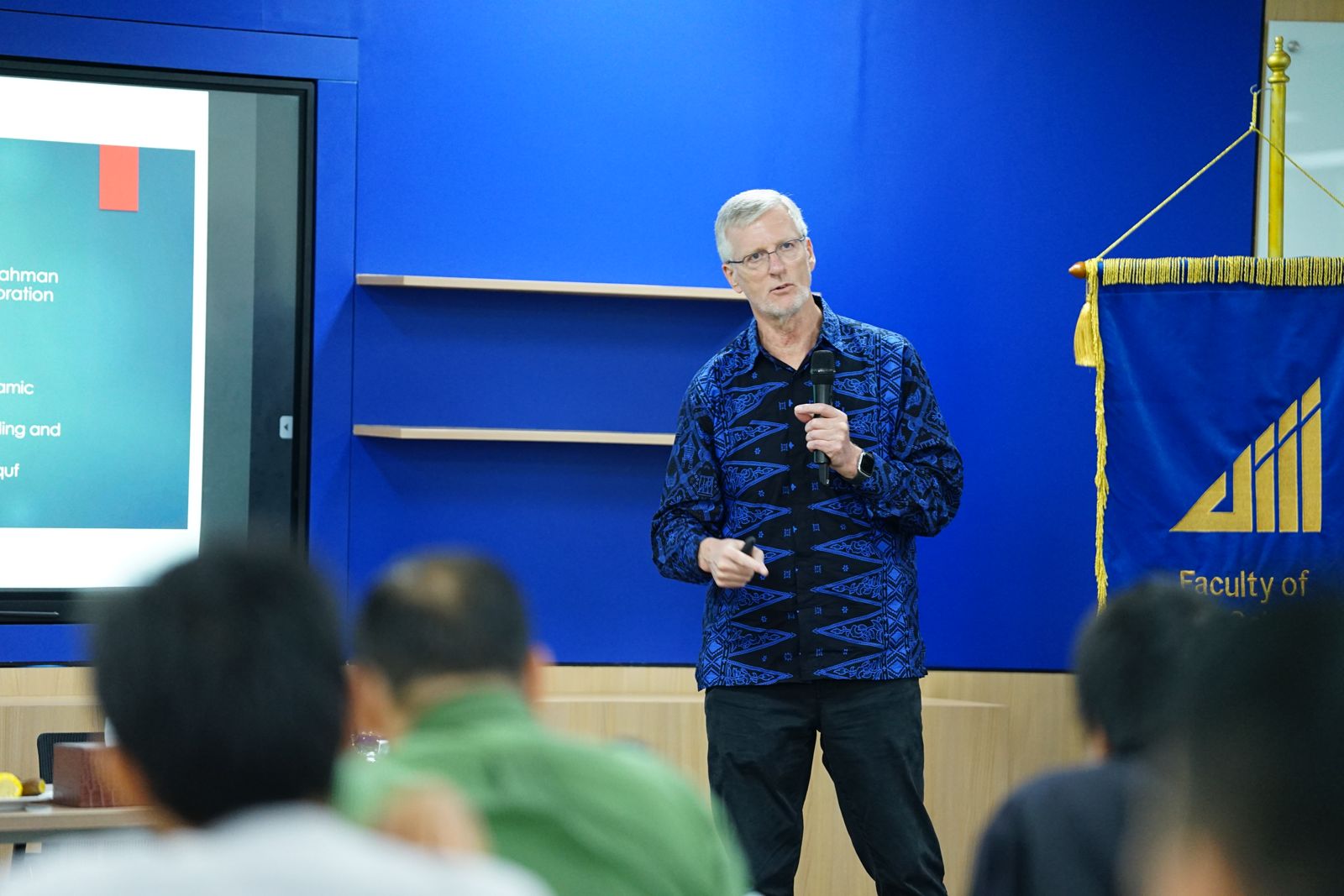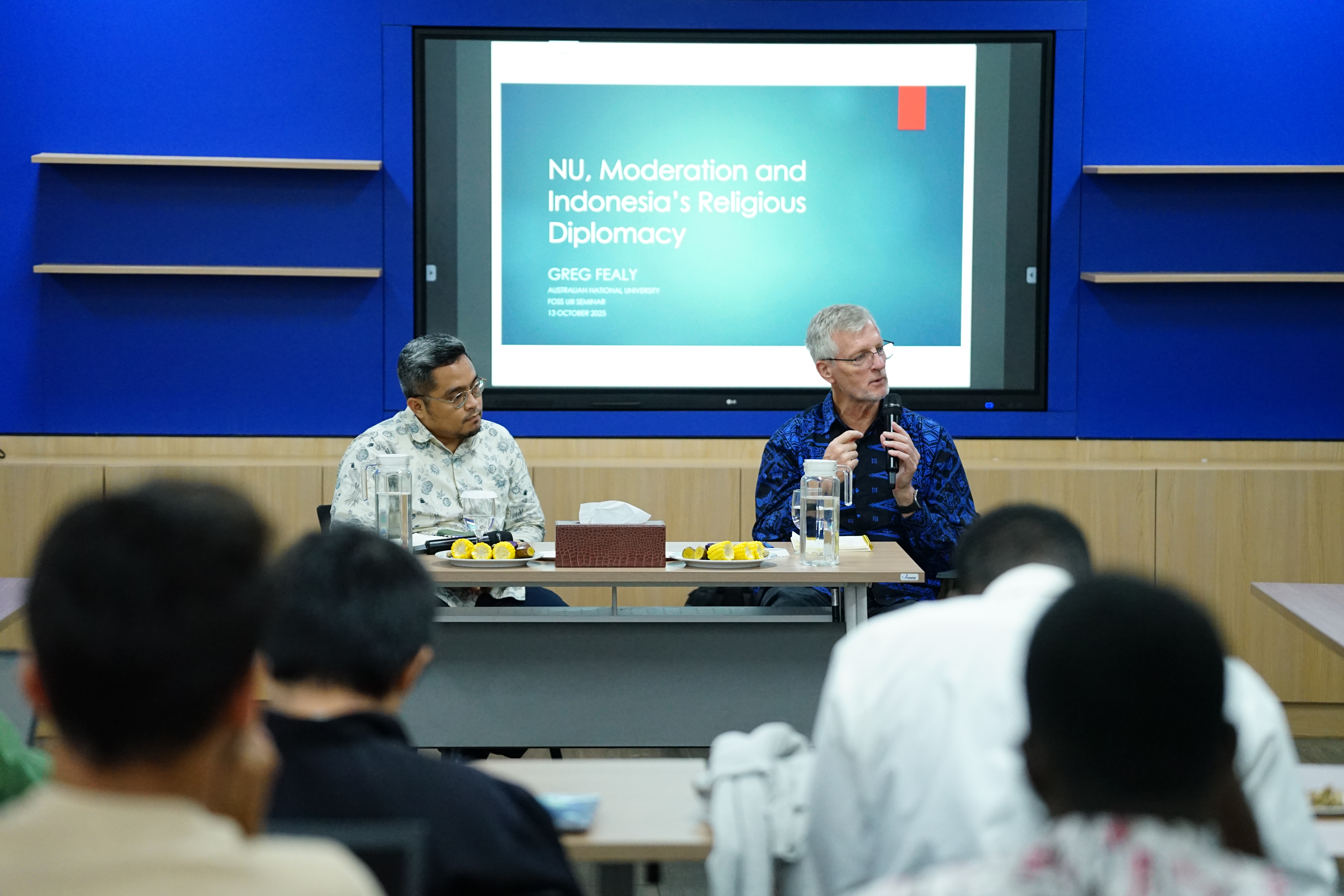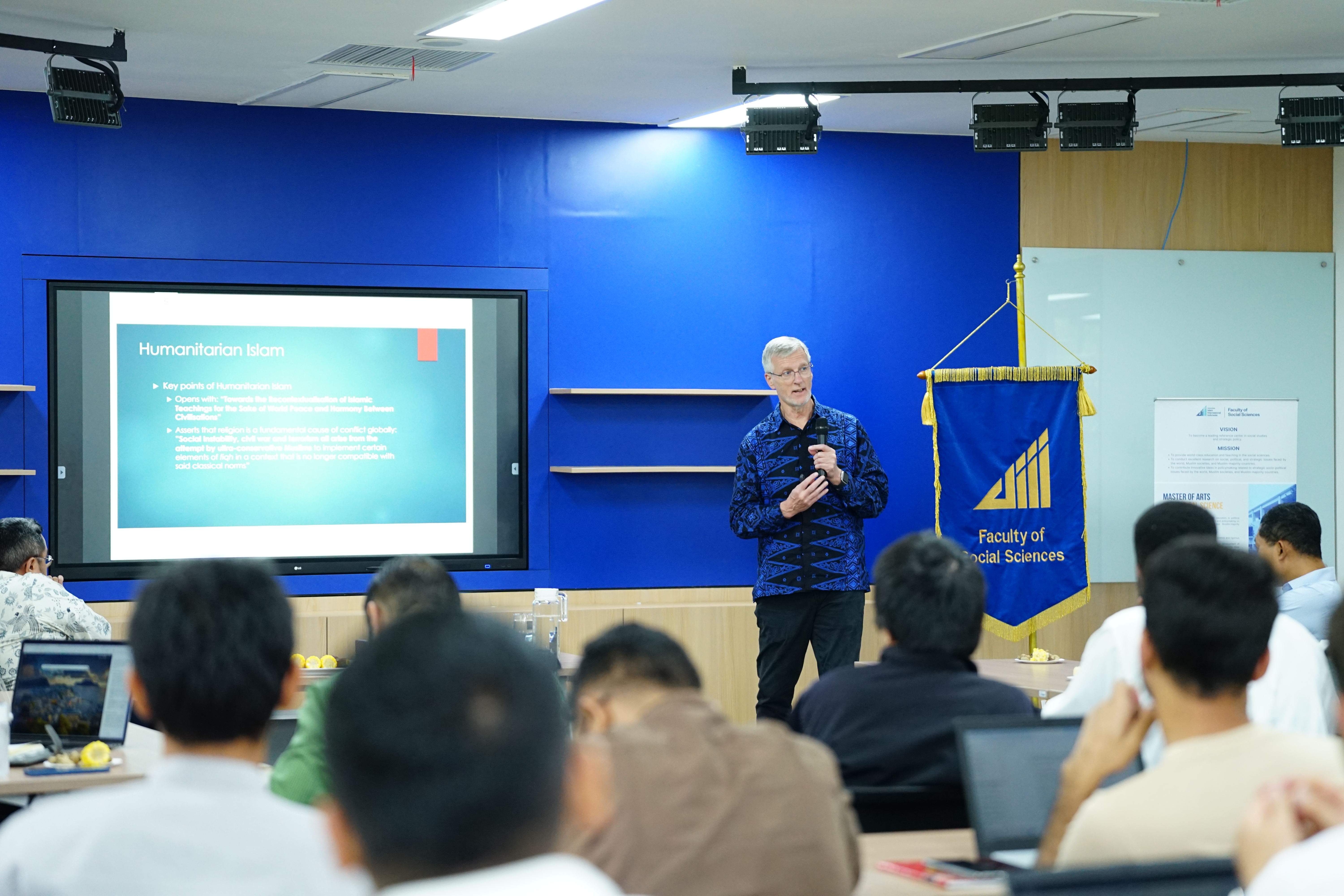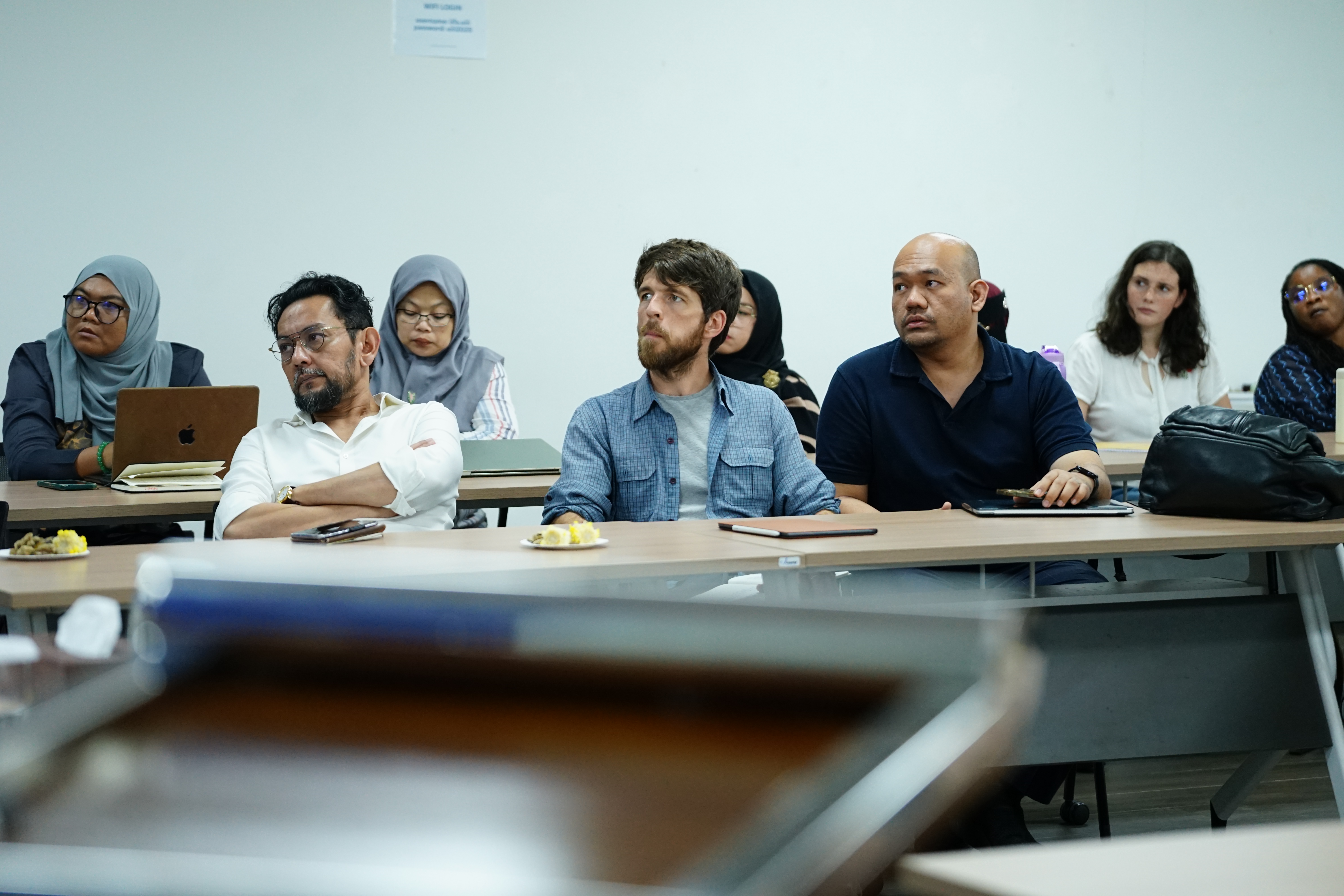More From News
UIII Builds a Bridge to Costa Rica
February 26, 2026
UIII Strengthens Its Academic Resources with Read Japan Project
February 25, 2026
October 14, 2025
Contributor: Supriyono | Photo: Andini Parahita W. & Sarah Permatasari

Depok, 13 October 2025 — The UIII’s Faculty of Social Sciences (FOSS) hosted the 68th edition of its Brownbag Series featuring Professor Greg Fealy, Senior Fellow at the Department of Political and Social Change, Australian National University (ANU) Canberra.
In his lecture titled “Nahdlatul Ulama (NU), Moderation and Indonesia’s Religious Diplomacy,” Professor Fealy offered a critical and historically grounded assessment of NU’s role in Indonesia’s growing engagement with global religious diplomacy.
During the session, Professor Fealy traced NU’s political influence and its close relationship with state power, particularly under the Jokowi administration. “You could argue that Jokowi would not have become president in 2014 without NU’s support,” he observed, highlighting the organization’s enduring capacity to shape both domestic politics and Indonesia’s international image as a moderate Muslim nation.
 He explained how NU’s concept of Humanitarian Islam and the state’s narrative of religious moderation have increasingly been incorporated into Indonesia’s soft power strategy. This integration, he noted, has positioned religion as a tool of diplomacy and global branding. Yet, he cautioned against viewing “moderation” as an uncomplicated good, emphasizing its fluid and often politicized nature. “Moderation is a relative and highly subjective concept—it depends on what is perceived as ‘extreme’ or ‘radical,’” he said.
He explained how NU’s concept of Humanitarian Islam and the state’s narrative of religious moderation have increasingly been incorporated into Indonesia’s soft power strategy. This integration, he noted, has positioned religion as a tool of diplomacy and global branding. Yet, he cautioned against viewing “moderation” as an uncomplicated good, emphasizing its fluid and often politicized nature. “Moderation is a relative and highly subjective concept—it depends on what is perceived as ‘extreme’ or ‘radical,’” he said.
Throughout his presentation, Prof. Fealy examined how international partners such as Saudi Arabia, the United Arab Emirates, and India have used the discourse of moderation to enhance their reputations while maintaining restrictive domestic policies. He argued that Indonesia’s association with such states, though beneficial diplomatically, could risk compromising the moral independence of its own moderate Islam agenda.
 Additionally, Prof. Fealy also scrutinized the concept of Humanitarian Islam as promoted by NU’s leadership, noting that its international promotion often involves elite networks and top-down initiatives that may not fully resonate with grassroots Muslims. “While NU’s efforts in promoting humanitarian values are genuine, they are often confined within the circles of leadership and international diplomacy,” he explained.
Additionally, Prof. Fealy also scrutinized the concept of Humanitarian Islam as promoted by NU’s leadership, noting that its international promotion often involves elite networks and top-down initiatives that may not fully resonate with grassroots Muslims. “While NU’s efforts in promoting humanitarian values are genuine, they are often confined within the circles of leadership and international diplomacy,” he explained.
The event concluded with a discussion among members of the UIII academic community on the implications of religious diplomacy for Indonesia’s global engagement and interfaith relations.
 The Brownbag Series at UIII’s Faculty of Social Sciences continues to serve as a platform for dialogue on pressing issues in politics, religion, and international affairs, encouraging critical engagement with global developments that shape Indonesia’s intellectual and diplomatic landscape.
The Brownbag Series at UIII’s Faculty of Social Sciences continues to serve as a platform for dialogue on pressing issues in politics, religion, and international affairs, encouraging critical engagement with global developments that shape Indonesia’s intellectual and diplomatic landscape.
Universitas Islam Internasional Indonesia